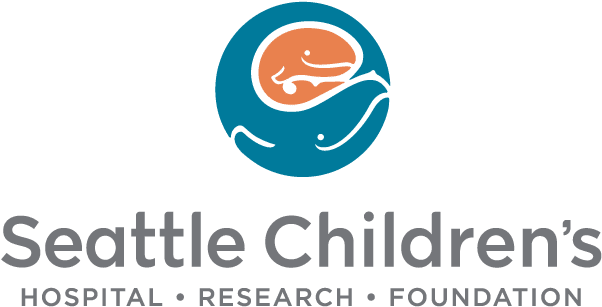Medulloblastoma is the most common brain cancer in children and accounts for almost one-fifth of all childhood brain tumors worldwide.
However, funding for medulloblastoma research is hard to come by because childhood cancer – any type of cancer – is considered a “rare disease”, as the number of children affected is much smaller compared to the number of adults with cancer.
Less research into pediatric cancer means more toxic treatments, more adverse effects, and, in some cases, little chance of survival. And that’s where the MBI’s work comes in.
The only way to find a cure for medulloblastoma is to integrate the work of several laboratories, with an absolute focus on Group 4 medulloblastoma. This is the proposal of the Cure Group 4 Consortium, made possible by The Medulloblastoma Initiative, the MBI.
This type of broad, collaborative research has received very little funding to date. The laboratories of the Cure Group 4 Consortium are committed to working together, sharing data before it is even published, and accelerating the development of effective treatment protocols, with the goal of developing new therapies in a short time frame — one to two years — rather than the five to ten years that are normally expected.
In the first 6 months of work (started in 2021), the Consortium has already implemented innovative models and made new discoveries about Group 4 medulloblastoma.
And, from 2024, we will have the first clinical studies with children. Let’s find the cure!

“With the right support, it will be possible to achieve a therapeutic approach much more quickly — 18 to 24 months, instead of 3 to 5 years.”
Roger J. Packer, M. D.
Director, Gilbert Neurofibromatosis Institute and Brain Tumor
Institute, Children’s National Hospital.
PRINCIPAL INVESTIGATOR
Dr. Roger J. Packer
Dr Roger J. Packer, creator and principal investigator of the Cure Group Four Consortium, is a world-leading expert in clinical and scientific neuro-oncology research. Dr. Packer began his research career in 1981. Since then, he has been intensely devoted to researching medulloblastoma, seeking to identify its cause and pattern of spread and find more effective treatments for medulloblastoma and other aggressive pediatric brain tumors.
Dr. Packer participated in the first study that clearly showed that adding chemotherapy to standard care was beneficial in children with medulloblastoma. This study helped increase the proportion of children who survive medulloblastoma. Now, Dr. Packer leads the Cure Group Four Consortium, which aims – based on a body of knowledge acquired over 40 years and with financial support from the MBI – to unravel the molecular and immune basis of medulloblastoma and rapidly develop a new treatment strategy.
RESEARCH TEAM
Meet our lead investigators
Roger J. Packer
M.D., Children’s National Hospital, Washington DC
Eugene Hwang
M.D.,
Children’sNational Hospital
Robert Wechsler-Reya
Ph.D.,
Columbia University,
New York
Duane Mitchell
M.D., Ph.D.,
University of Florida
Nicholas Vitanza
M.D.,
Seattle Children's Hospital
Jessica B. Foster
M.D.,
Children's Hospital of Philadelphia
Michael Taylor
M.D., Ph.D.,
Texas
Children’s Hospital
Vijay Ramaswamy
M.D., Ph.D.,
SickKids,
Toronto, Canada
Yanxin Pei
Ph.D.,
Children’s
National Hospital
Brian Rood
M.D.,
Children’s National
Hospital Conrad
Sheila Singh
M.D., Ph.D.,
McMaster University, Ontario, Canada
Tobey MacDonald
M.D., Emory University School of Medicine, Atlanta
Lena M. Kutscher
Ph.D.,
Heidelberg University,
Germany
Stefan Pfister
M.D.,
Heidelberg University,
Germany
Dalia Haydar
Pharm.D., Ph.D.,
Children’s
National Hospital
Javad Nazarian
Ph.D.,
Children’s
National Hospital
Carl Koschmann
M.D.,
University
of Michigan
Elias Sayour
M.D., PhD.,
University of Florida
Craig Daniels
Ph.D.,
SickKids Toronto
William Weiss
M.D., Ph.D.,
University of California
SCIENTIFIC INSTITUTIONS INTEGRATING THE CONSORTIUM












External advisory board
An External Advisory Board (EAB) consisting of four renowned researchers monitors
the development of research in accordance with ethical and scientific principles and guidelines.
Rajeev Vibhakar, MD, PhD, MPH
Children’s Hospital Colorado, University of Colorado
Professor of Hematology/Oncology and bone marrow Transplantation, with clinical work with an emphasis on medulloblastoma treatment.
He is involved in cutting-edge research focused on the genetic mechanisms that turn normal brain cells cancerous and how these changes can improve brain tumor diagnosis and treatment.
Scott Pomeroy, MD, PhD
Boston Children’s Hospital, Harvard Medical School
Chief of the Department of Neurology, Professor of Neurology at Harvard Medical School.
He has played a key role in establishing treatment protocols for children with brain tumors and in fostering collaboration between research institutions to improve patient care and outcomes.
Sidnei Epelman, MD
Santa Marcelina Health Center, São Paulo, Brazil
Pediatric Oncologist, President of the Association for Children and Adolescents with Cancer (TUCCA). Director of the Pediatric Oncology Department, Santa Marcelina Hospital. Professor of Clinical Oncology, Santa Marcelina College.
Coordinator of the Central Nervous System Tumor Cooperative Group of the Brazilian Society of Pediatric Oncology (SOBOPE), and Latin American President of the International Network for Cancer Treatment and Research (INCTR).
Stewart Goldman, MD
Phoenix Children's Hospital, University of Arizona
Pediatric Oncologist, Professor at the University of Arizona College of Medicine, he has received several awards in his career.
He is actively involved in clinical trials, pioneering new therapies to enhance patient survival and quality of life.
Juntos fazendo história
Em menos de 30 meses após sua fundação, a MBI alcançou um de seus objetivos mais importantes. Isso abriu portas para dois novos ensaios clínicos aprovados pela FDA sobre possíveis tratamentos para recidiva de meduloblastoma do Grupo 4. Ambos são liderados por investigadores da Universidade da Flórida e financiados pela MBI. Cada um representa o primeiro teste desse tipo em humanos.
Leia os detalhes no Report de Setembro 2024




